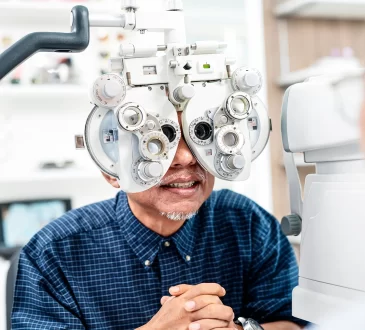
When you’re ready to seek help for addiction or mental health issues, one of the first and often most confusing decisions you’ll face is choosing the right level of care.
Do you need the full-time structure of day treatment? Or is an outpatient program enough to keep you on track while you maintain your daily routine?
Both offer meaningful support. Both can be life-changing. But the key is knowing which one fits your specific needs, lifestyle, and stage of recovery.
In this guide, we’ll break down the difference between day treatment (often called a partial hospitalization program) and outpatient treatment, so you can make an informed choice about what’s right for you or your loved one.
What Is Day Treatment?
Day treatment, also known as a partial hospitalization program (PHP), is a structured, full-day treatment model for individuals who need more support than traditional outpatient therapy can provide but don’t require overnight residential care.
A typical partial hospitalization program in Boston, Massachusetts involves attending treatment sessions five days per week, often for five to six hours per day. During that time, clients engage in:
- Individual therapy
- Group counseling
- Psychiatric and medication management
- Family therapy sessions
- Skill-building and relapse prevention workshops
- Wellness activities such as yoga or mindfulness
The goal of PHP is to provide comprehensive care in a controlled, therapeutic environment while allowing clients to return home at night. It’s an ideal option for people who need intensive treatment but also want to stay connected to family or community life.
What Is Outpatient Treatment?
Outpatient treatment refers to therapy and support services that occur for a few hours per week, typically two to three times depending on the program. It’s designed for individuals who have already developed strong coping tools or are stepping down from higher levels of care, such as PHP or IOP.
At an outpatient treatment program in Boston, Massachusetts, clients might participate in:
- Individual counseling sessions
- Group therapy
- Continuing education on relapse prevention
- Check-ins with a psychiatrist or case manager
Because outpatient sessions take place only a few hours a week, clients are able to maintain work, school, or family responsibilities while still receiving ongoing support.
Outpatient programs are often the final stage of the recovery continuum helping individuals sustain progress and stay connected to treatment professionals long-term.
When Day Treatment Might Be the Right Choice
Day treatment is often the best fit for individuals who need structured, hands-on care but don’t require 24-hour monitoring.
You might benefit from a partial hospitalization program if:
- You recently completed residential or detox treatment and need step-down care.
- You’re struggling to stay stable in outpatient therapy.
- You experience cravings, mood swings, or triggers that feel unmanageable.
- You need medication management or daily therapeutic support.
- Your home environment feels stressful or triggering.
Day treatment gives you the space to heal without the constant exposure to outside pressures. It’s a safe, structured bridge between inpatient and full independence.
Many clients describe PHP as a “recovery boot camp” , immersive, consistent, and deeply transformative.
When Outpatient Might Be the Better Fit
Outpatient care works well for individuals who are further along in their recovery journey or who have strong support systems at home. You might be ready for an outpatient treatment program if:
- You’ve successfully completed PHP or IOP and want to maintain progress.
- You can manage triggers and emotions without daily supervision.
- You have supportive family, friends, or sober community connections.
- You want flexibility to balance work, school, or childcare with treatment.
Outpatient care is often the final step in a full addiction treatment program in Massachusetts, the phase where you apply everything you’ve learned in real life while still checking in with professionals for accountability and support.
The Middle Ground: Intensive Outpatient Programs (IOP)
Between PHP and standard outpatient care sits another option: the intensive outpatient program (IOP). This level of care offers the structure of day treatment but with fewer hours, making it an excellent step-down or flexible alternative for people balancing recovery with daily life.
An intensive outpatient program in Boston, Massachusetts typically runs three to four days per week for about three hours per session. It includes therapy, group sessions, relapse prevention, and sometimes medication support.
IOP is perfect for individuals who no longer need daily structure but still want consistent guidance and community connection.
Think of it like this:
- Residential: Full-time care, living onsite.
- PHP (Day Treatment): Full-day care, return home at night.
- IOP: Several half-days per week.
- Outpatient: Occasional sessions as needed.
This “continuum of care” model ensures no one has to face recovery without the right level of structure.
How to Choose Between Day Treatment and Outpatient
Choosing between these levels of care can feel overwhelming, but it comes down to three main factors:
1. Your Current Stability
If you’re struggling with cravings, mood swings, or relapse triggers, a partial hospitalization program may be necessary to stabilize your symptoms before stepping down.
If you’re maintaining sobriety and just need guidance or accountability, an outpatient treatment program can keep you on track without disrupting your routine.
- Your Environment and Support System
Recovery doesn’t happen in isolationit’s shaped by your surroundings. If your home or social environment feels unstable or triggering, day treatment provides a safe, recovery-focused space during the day.
If you have a strong support network and healthy home environment, outpatient care may provide enough structure for continued success.
- Your Schedule and Commitments
Work, school, and family responsibilities matter. If you can dedicate several hours a day to healing, day treatment may be ideal. If you need more flexibility, an intensive outpatient program offers a strong balance between structure and independence.
A professional assessment can help determine the right fit based on your unique needs. Many addiction treatment programs offer clinical evaluations before recommending a level of care, ensuring your treatment plan is personalized, realistic, and effective.
Why the Right Level of Care Matters
Matching the right level of care to your current stage of recovery can make all the difference. Too little support too soon can lead to relapse or burnout. Too much structure for too long can slow down independence and confidence.
That’s why choosing a program that offers multiple levels of care from partial hospitalization to intensive outpatient to standard outpatient treatment is key. You can step up or down as needed, ensuring treatment always meets you where you are.
At our addiction therapy program in Massachusetts, we specialize in helping clients transition seamlessly between levels of care. Whether you need the stability of PHP, the balance of IOP, or the flexibility of outpatient sessions, our team builds a customized plan to support your recovery journey every step of the way.
The Continuum of Care in Action
Here’s an example of how a typical client might move through this system:
- Residential Treatment or Detox: Stabilization phase, focused on safety and medical management.
- Partial Hospitalization Program: Intensive daily therapy to build coping tools and address underlying issues.
- Intensive Outpatient Program: Fewer hours but continued structure and accountability.
- Outpatient Treatment Program: Maintenance and long-term relapse prevention.
This structured approach allows clients to grow stronger at each stage without feeling rushed or unsupported.
Making the Decision
If you’re unsure whether day treatment or outpatient care is right for you, start with an assessment. A licensed clinician or admissions specialist can evaluate your physical, emotional, and environmental needs to help guide your choice.
Remember: there’s no “better” or “worse” level of care, just the right one for where you are today. Recovery isn’t about fitting into a mold. It’s about building the structure that helps you thrive.



